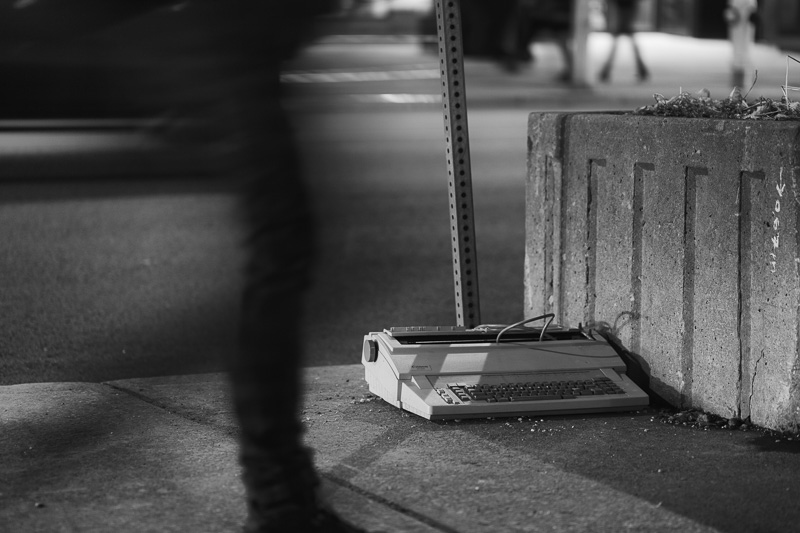
When I was in high school, my mom suggested I submit a short story to the annual Toronto Star short story contest. The first prize was an Olivetti word processor which retailed for something like $3,500.00. I wasn’t sure what a word processor did, but the contest blurb promised that it would make me a better writer. Serious people used them. Reporters at the Toronto Star were making the switch. I didn’t win the contest, probably because I didn’t write my losing story on an Olivetti word processor. Instead, I went on plunking my words on a manual typewriter, even into the first two years of university when I scraped together enough money to join the modern world. I bought a 128 k RAM MacIntosh computer and daisy wheel printer.
Whenever I embrace the future, there inevitably follows a feeling of disappointment as I discover that the future is just the past wrapped in a shiny new package. In 1873, when James Densmore sold the rights for the Sholes and Glidden Type-Writer to E. Remington & Sons, they settled on the QWERTY keyboard configuration. The configuration separated letters that frequently appear in combination in order to keep the keys from jamming. In other words, the configuration deliberately slowed the typing process to address a mechanical shortcoming. With the introduction of the electronic keyboard, that shortcoming vanished. The word processor was touted as the latest in modern efficiency but retained the inefficient keyboard configuration. A decision taken nearly 150 years ago continues to haunt us today.
Other inefficiencies haunt us in a more fundamental way. Today, I can write by dictating to iPhone apps or Siri or Alexa or Google Home. Tomorrow, I might be able to write by tapping directly into the language centres of my cerebral cortex. But the cognitive processes that Herodotus used to write The Histories 2,500 years ago are the same cognitive processes I use to write this blog post today. Funnily enough, this blog post had its beginnings in the pen and ink scratchings I laid down in an old-fashioned coffee-stained notebook. Despite my hopes for a more efficient and more prolific me, my brain, with its ancient cognitive habits, wants to work things out in its own time.